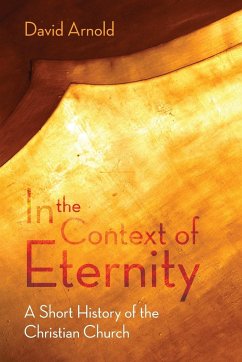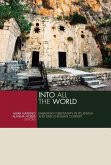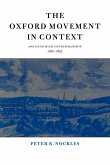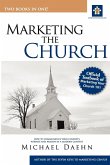In the Context of Eternity is a lively and readable one-volume history of the Christian Church, which challenges the view that ancient history came to an end in the fifth century and that nothing of significance then happened until the Renaissance. It explains how an extraordinary intermingling of the Roman Empire, Christianity, and Barbarism produced the most dynamic society the world has ever known, and how the modern world emerged from the interaction of Christianity and Barbarism on the ruins of Rome. There is a prologue explaining the background to the world out of which Christianity developed and an epilogue commenting on the state of the Christian Church at the beginning of the third millennium. The period of two thousand years in between is divided into six sections, each of which is given the same number of pages and each of which is divided into three chapters. Thus, the period from the 330s to the 660s, on ""Christendom and the Roman Empire,"" is given the same attention as the period on ""The Era of Reform,"" from the 1330s to the 1660s. Chapter 18 is an account of the development of Christianity in the United States of America. ""This highly perceptive book is obviously the product of decades of reading and independent reflection on the whole sweep of Christian history. It is always clear, sympathetic, informative, and fair-minded, and it will appeal to a very wide readership."" --Henry Mayr-Harting, Emeritus Regius Professor of Ecclesiastical History, University of Oxford ""It is truly remarkable and exceptionally clearly and attractively written."" --Derek Beales, Professor of History, University of Cambridge ""The book is a delight, a tour de force. . . . I wish I had a copy when I was a young seminarian."" --Michael Brockie, Roman Catholic Canon Lawyer, Provost of the House of Canons of the Archdiocese of Westminster ""I will make use of it in my lectures, because the way the faith developed is not always sufficiently understood by many theologians and priests."" --Jaako Rusama, Professor of Theology, University of Helsinki ""I was seduced by the fluency of the writing and the freshness of the approach."" --Michael Turnbull, Former Anglican Bishop of Durham David Arnold was born in England, and after school and two years in the army was a scholar of Pembroke College, Oxford, where he read history. He has been headmaster of a grammar school and principal of a college and is a Fellow of the English Historical Association.
Bitte wählen Sie Ihr Anliegen aus.
Rechnungen
Retourenschein anfordern
Bestellstatus
Storno




